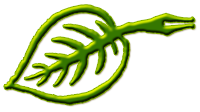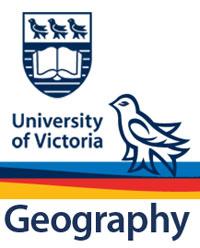Eugene was our second to last stop before our Cascadia Sustainability Field School was over. Not many of us had visited or even heard of Eugene before this field school, but we were all more than excited to escape from Seaside’s sideways rain and howling wind. Our group took a biofueled bus from Seaside to Eugene, and thankfully the weather was in the process of turning around and we were able to pull over and view the beautiful scenery and get great pictures on cliffside of the Oregon coast. We also had the luxury of stopping in at the Willamette Valley Vineyards, founded by Jim Bernau. Here we enjoyed a winery tour and tasting, and learned about Jim’s passion for building a healthy and sustainable vineyard. After stocking up with our delicious sustainable wine we re-boarded our biofueled bus and continued our trek into the Willamette Valley to find the Eugene Whiteaker International Hostel.
Eugene is home to the University of Oregon(U of O); anything goes in this city of Birkenstocks and track runners. There is an evident contrast of rural town charm and urban style amongst the city’s attractions, ranging from naturally beautiful parks and walking/biking trails along the Willamette River, to the unique community art collections found throughout the city. We stayed in the Whiteaker neighbourhood which is 25 minutes northwest of the downtown core. This neighbourhood is distinguished as being the anarchist capital of the world, and attracting many counter-cultural people, artists, activists, and of course anarchists. This area is filled with a multitude of eclectic public art collections, and funky cafe’s, eateries, and pubs.

We were warmly welcomed and hosted by owner/operator Craig Hines at our Eugene Whiteaker International Hostel . This hostel incorporates much of the local culture and businesses in the neighbourhood, which we experienced on the Friday night of our stay in Eugene. Friday night was a party for the Art Walk, which included many local artist and tasty beer from Ninkasi. This neighbourhood hosts an artistic side, including the once monthly Art Walk featuring local artists displayed in various venues in the area.
Our first stop on our itinerary was visiting the Maitreya Eco-Village organized by Robert Bolman. Robert is very intent on building with renewable resources at a sustainable pace. We viewed a couple of his Natural Buildings which included a straw bale building, a cob cottage, and the wooden triplex. The Straw Bale house’s intention was to be able to be recycled back into the earth, leaving little to no waste behind in it’s wake. As well this straw bale insulation is considered to be highly effective and more efficient at insulating a building than our familiar pink fiberglass-based insulation. A goal of the eco-village is to bring a community together, where everyone interacts with one another and brings people out of isolation. Robert was captured by European models of successful higher density housing with street oriented gathering places to interact. The Maitreya Eco-Village was a very extreme example of sustainable communities. The people in this small community seemed very excited about their work and lifestyle, but even Robert admits that some of their methods might not always be a first choice for builders, yet it is admirable and inspiring the lengths this eco-village has gone to be environmentally sustainable.
A favourite amongst Eugene folk, and our Cascadia field school group, was Sam Bond’s Garage. We were lucky enough to be able to join in on their notorious Thursday bingo night, hosted by two humorous characters. Thankfully we were seated outside in the patio, yet we were still able to hold the title of the rowdy Canadians (tastefully of course). The final jackpot of the night held$40, a mango, a picture of somebody’s ex-girlfriend, a gift certificate, an abundance of coupons, and some Canadian girls’ phone number. With much anticipation and excitement our very own gal Lauren made bingo, and claimed everything but the missing mango.

After a fun night of bingo we started off our day by visiting Anya Dobrowolski, a sustainable leader from the city. We met in downtown Eugene, which has undergone much revitalization in the last year. Eugene is attempting to bring business back to their downtown core and they are trying to make it a more friendly and appealing environment for residents to conjure in. Eugene is heavily promoting rapid transit and bicycling throughout the city, in part to reduce GHG emissions. Eugene takes there bicycling seriously and have taken some pretty drastic measures to make it more viable for these gas-less commuters, including expanding bike lanes for their high-use volumes, as well there are multiple bike and pedestrian-only bridges in the city. Eugene is one of the top ten bicycle city’s in the U.S, and the pride themselves off of this title; and can’t you blame them when they estimate that the cycling business brings $400 million dollars to Eugene annually.
After hearing about all the great initiatives that Eugene is pushing forward we got to experience one of their most successful ones. The UO Bike Program, run by U of O on campus, which was started by students in 2008. Their original initiative was to increase access to affordable, reliable, and sustainable transportation. This program caught on for many students and the community. Today the offer DIY workshops, and education customers on how to buy the proper bike for them, and off course they are still loaning bicycles. This initiative is U of O’s way of stepping towards a sustainable future while reducing the impact on the environment
Once we enjoyed a bike tour around town we took a pit stop along the Willamette River, and split up into teams of 4 or so in order to complete a fantastic eco-minded, Eugene-culture inspired scavenger hunt- put together by Anya. We all peddled off with our Ducks coloured beach cruisers. This fun scavenger hunt aloud everyone to really explore and observe Eugene, and some teams found more than just the items on their list, and had the opportunity to get involved in the community. One team found a campus event and enjoyed great music, free eats and t-shirts (along with some equally great sunburns). As well team Mani-Pedi, aka the Cheetah Girls, managed to stumble into a photo shoot and commercial clip for the Bette Biker clothing line, while searching for an electric car charging station. This scavenger hunt allowed the opportunity to become involved with the community and to stop and take a closer look at some of the great ‘green’ initiatives that the city and public have pursued.


http://www.bettebiker.com/#!video/cltg
(minute 1:30)
On our third day in Eugene we took part in the sustainable transportation options Eugene has to offer by walking and bicycling to the Saturday Market. We spent the morning learning from Beth Little about the Saturday Market and how it has grown and evolved over the many years history. The Saturday Market has been in operation for approximately 40 years, which reflects the local economy and culture. Beth talked of the informed customer base in the region about both the local and organic products available and how the demographic base was varied.
The organization of the market owns the right to the name Saturday Market; however, they do not readily allow the use of the name to other communities who want to use it. The Eugene Saturday Market entrepreneurs must make the products they are selling so that the products are kept local. The market is made up of very artistic and cultural people, along with the products they make. The process of deciding who gets to sell their products, Beth told us, was left to the customers. This process is done by sales, and if a seller does not do any business another seller will replace them. This process also helps to promote local small businesses. The farmers market that accompanies the Saturday Market has many local and organic products; much of our group purchased produce and other great foods for our evening potluck dinner. The sellers have a wide variety of produce and grocery items to choose from.
The market provides a home for artist who wouldn’t normally have a place to sell their products. Beth mentioned that within the culture if you self identify as an artist you will not self identify as poor. Building a self image is an important part of building community and much of Eugene is largely linked to building a strong community.
Besides being attacked by the heavy pollen content in the air, and enjoying itchy eyes and sneezing, Eugene was a pleasant surprise. This itinerary stop allowed us more room to interact with the community and gain an appreciation for a small city who is eagerly trying to come together and build a strong community with a sustainable and local economy. Eugene has taken some impressive progressive initiatives, especially for being a smaller American city, and they have so much more room to grow into the sustainable city they are striving to become. We look very much forward to following up with Eugene’s progress, and seeing the positive outcomes of their hard work.

